CPED's History & Milestones
CPED Milestones2024 Membership grew to 150 member institutions. A team of 10 university members came together to join a collaborative self-study using the two CPED rubrics. Our largest convening ever with 450 participants was hosted by our 2018 program of the year winner, the University of Hawai’i at Mānoa. Late in 2024, we lost the visionary behind CPED, Dr. Lee Shulman. Read our heartfelt tribute to him noting his profound and enduring legacy.
2023
2022 CPED concluded the Strategic Visioning process that established three priorities:
An overview of the Visioning process and results can be seen HERE.
The first in person post-COVID 19 convening was held in Pittsburgh.
2021
CPED continued with the Strategic Visioning process and produced a new mission and vision for the organization and a first time set of values. Watch the video explaining the Strategic Visioning process HERE. Additionally, CPED launched its Coming of Age of the Education Doctorate book series with Myers Education Press.
2020
In 2020, CPED launched a Strategic Visioning process that would last two years (because of delays related to the global COVID-19 pandemic). As Strategic Planning Team was created and Dr. Manuelio Biag led the team through the process. Data was gathered from members through various focus groups and activities. Additionally, CPED held its first virtual convening that was free to all member faculty and students. Over 600 attendees participated.
2019 CPED launched its new website in August. CPED's new communications and website strategies have fostered larger engagement with members, stakeholders, and prospective members.
CPED evolved its convening agenda format starting with the #CPED19 June Convening to give members more time for learning and engaging with each other. The #CPED19 June Convening hosted by University of Nebraska - Lincoln was the second highest attended convening with 211 participants attending.
2018 CPED Board of Directors approved funds to retain a law firm with the goal of reframing CPED's governance and expanding opportunities for members. CPED made investments in creating new communications and website strategies. Specialists in both areas have been brought on board to rethink CPED communications strategies and delivery and to design a new website that will support members with resources and information. 2017
Additionally, CPED was awarded $500,000 by the WT Grant Foundation to study Research Evidence Use by graduates of four CPED member institutions.
2016 CPED launched its journal, Impacting Education: Journal on Transforming Professional Practice.
2015 September: CPED accepted an offer by the University of Pittsburgh to move its headquarters and make the University of Pittsburgh CPED’s academic home for the coming five years. CPED relocated to the School of Education at Pittsburgh with Executive Director, Jill A. Perry, PhD, being appointed as a research associate professor in the School of Education where she will continue her leadership duties. 2014 In its third Phase, the Consortium has decided to both expand and sustain the organization. Current members have supported the initiative in applying to become a 501c3 Non Profit organization. This new organization will expand with a call for new members. It will also set forth an ambition agenda that will offer policies and guides for EdD program development. FIPSE research data, manuscripts and products will be rolled out just as we initiative a new cohort into the design process of EdD program development. 2010-2013 With the receipt of the FIPSE Grant, the CPED Initiative entered a second phase during which the consortium engaged in a mixed-methods, multi-case study of its work at 21 of the original member institutions. In addition, the Consortium added 8 new California State University campuses and 27 new universities that committed themselves to continuing the work of the Consortium in a continuous and evaluative discussion of the Education Doctorate. During this time, CPED Headquarters moved to Duquesne University School of Education where Dr. Jill A. Perry, Executive Director received a research faculty position. A founding member, Duquesne University has offered both support and guidance to the Consortium. 2007-2010 With the support of the Carnegie Foundation for the Advancement of Teaching under the leadership of then President Dr. Lee Shulman, and the backing of the Council for Academic Deans of Research Education Institutions (CADREI), the project began with 25 member institutions, a small pot of funds from the Carnegie Foundation and an ambitious goal to redesign doctoral preparation for professional practitioners. This first phase resulted in a set of principles, architecture and models of programmatic and institutional change. In September 2010, the hard work of the consortium was rewarded with a $700,000 grant from the Fund for the Improvement of Post-Secondary Education (FIPSE). Download the CPED 10 year timeline here. Proclamation of CPED’s Teacher: Lee S. ShulmanWHEREAS, Lee S. Shulman, President Emeritus of the Carnegie Foundation for the Advancement of Teaching, has inspired colleagues representing a national consortium of universities-the Carnegie Project the Education Doctorate known as CPED- to learn; and WHEREAS, Lee S. Shulman has engaged and guided that learning in pursuit of new models for the formation of doctoral candidates who, in turn, aspire to serve learners and learning as professional educators; and WHEREAS, Lee S. Shulman has shared with the consortium his moral compass- his pedagogical imperative- to guide learning; NOW, THEREFORE, BE IT PROCLAIMED by those gathered as the CPED consortium on this date and in this place that Lee S. Shulman is recognized – in addition to all other honors and awards—as CPED’s Teacher; that those who graduate from the doctoral programs of this consortium shall know the legacy of his teaching and so learn to use his moral compass, to engage his pedagogical imperative that they may know teaching as community property and acquire the wisdom of practice and to inspire learning and learners, generation after generation. Signed this 22 October 2009, in the City of Pittsburgh by representatives of the university that constitute the Carnegie Project on the Education Doctorate. |

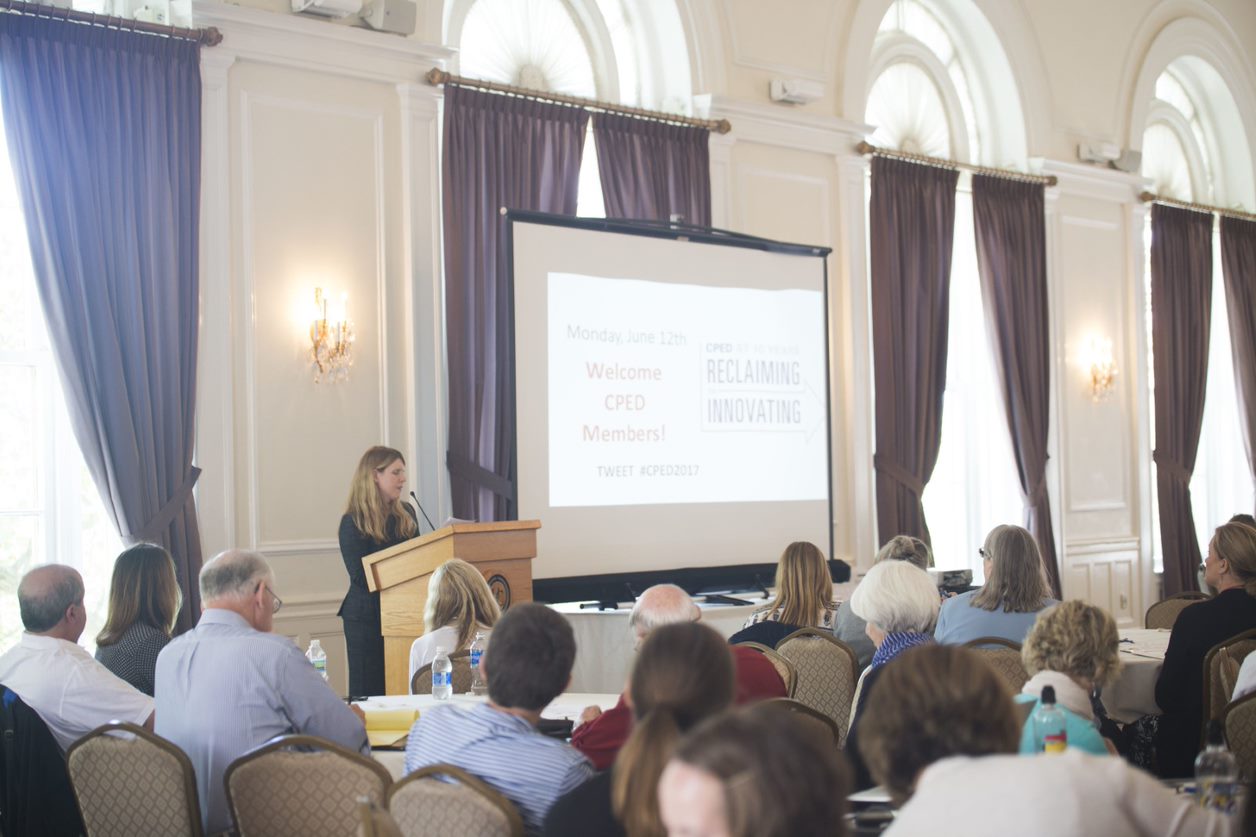

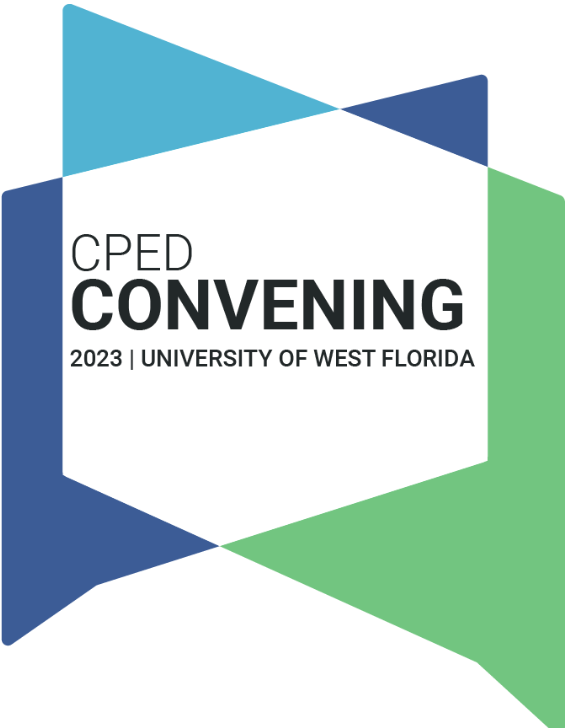

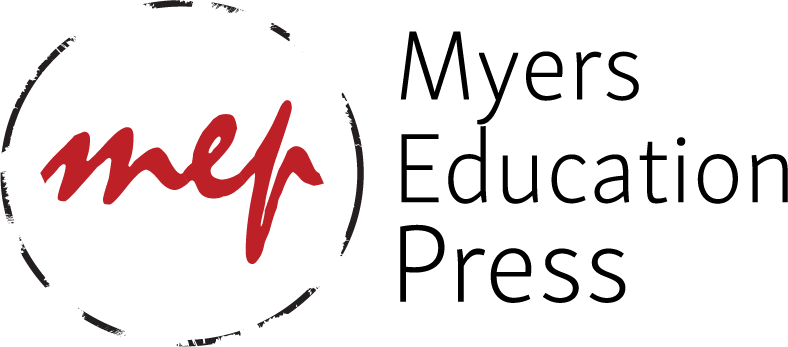
 CPED Board of Directors and Executive Director Jill A. Perry announced
CPED Board of Directors and Executive Director Jill A. Perry announced 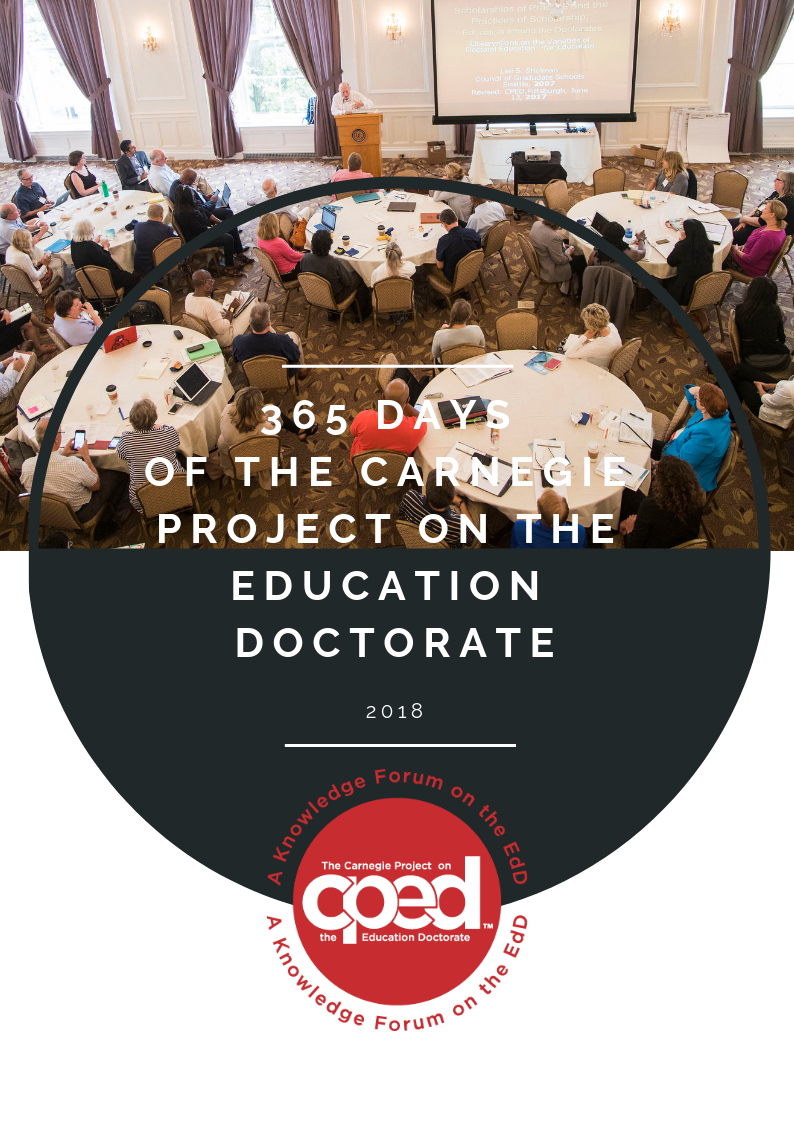 CPED published its first ever
CPED published its first ever 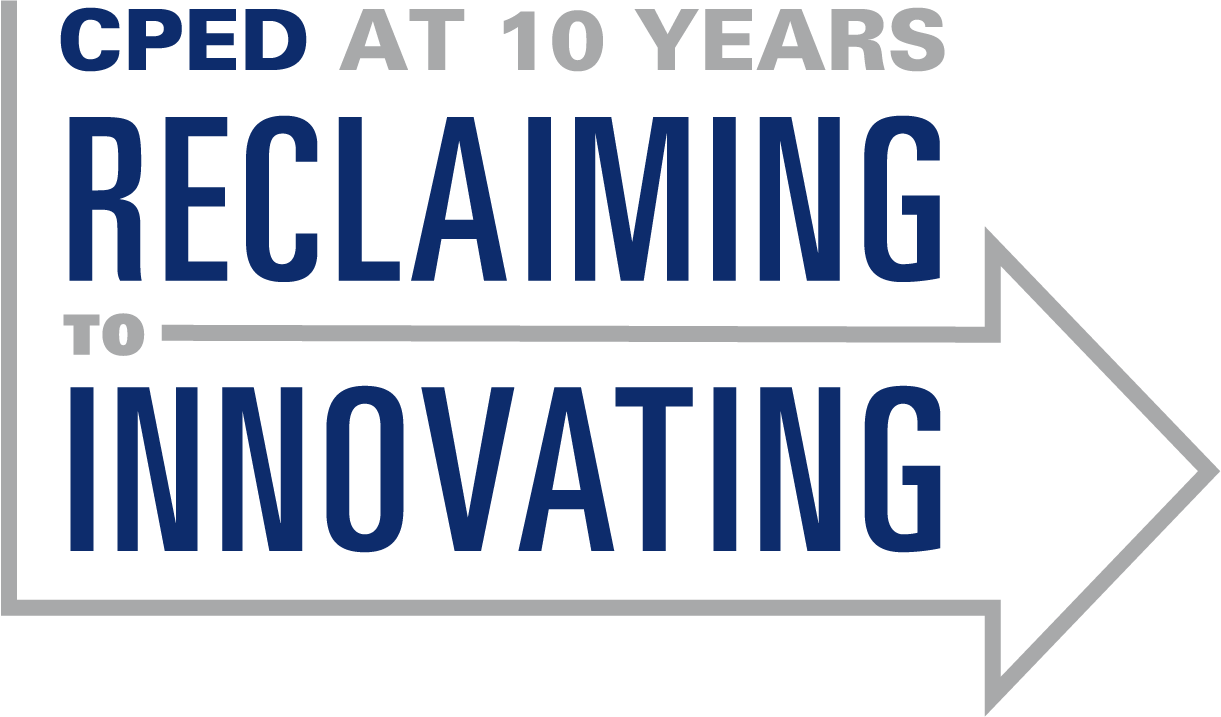 CPED celebrated its
CPED celebrated its 